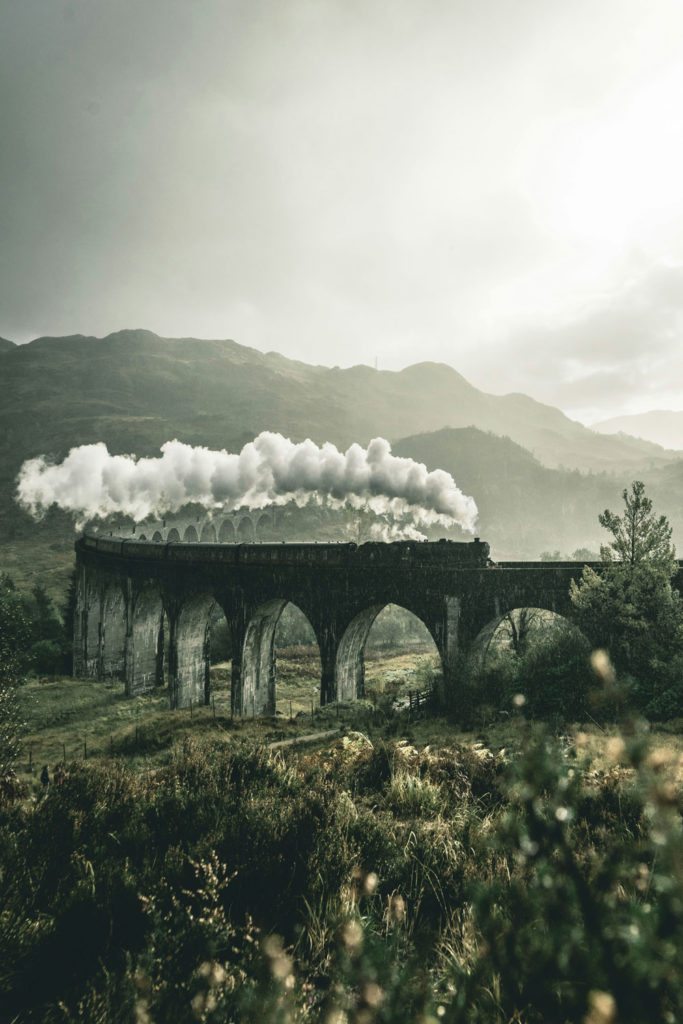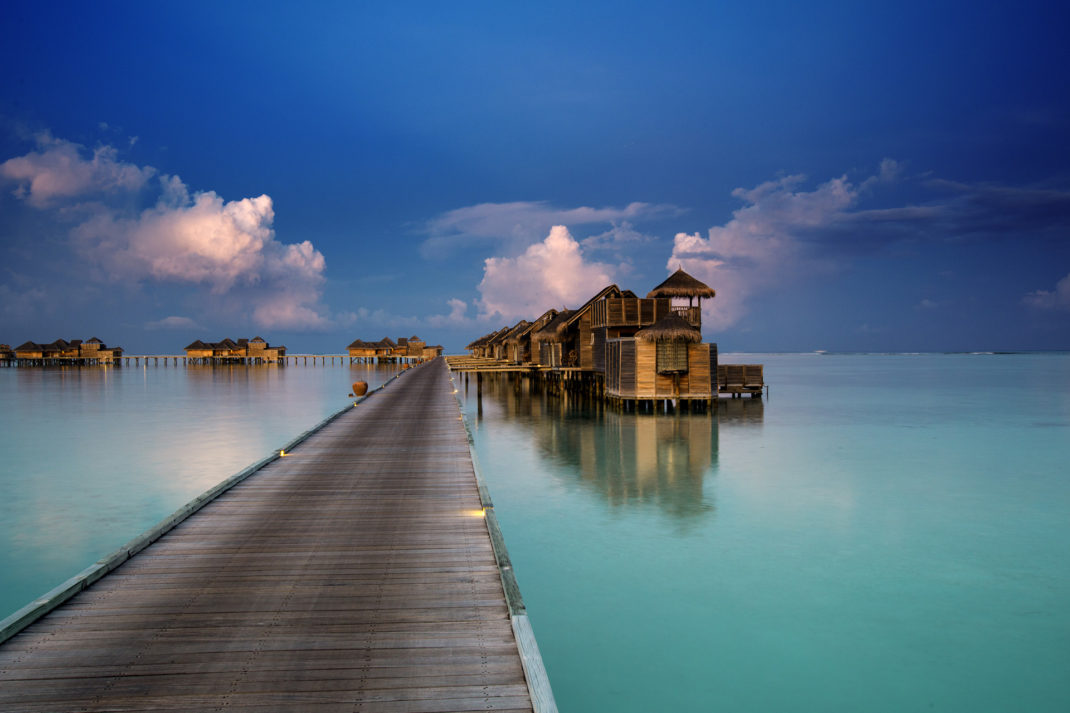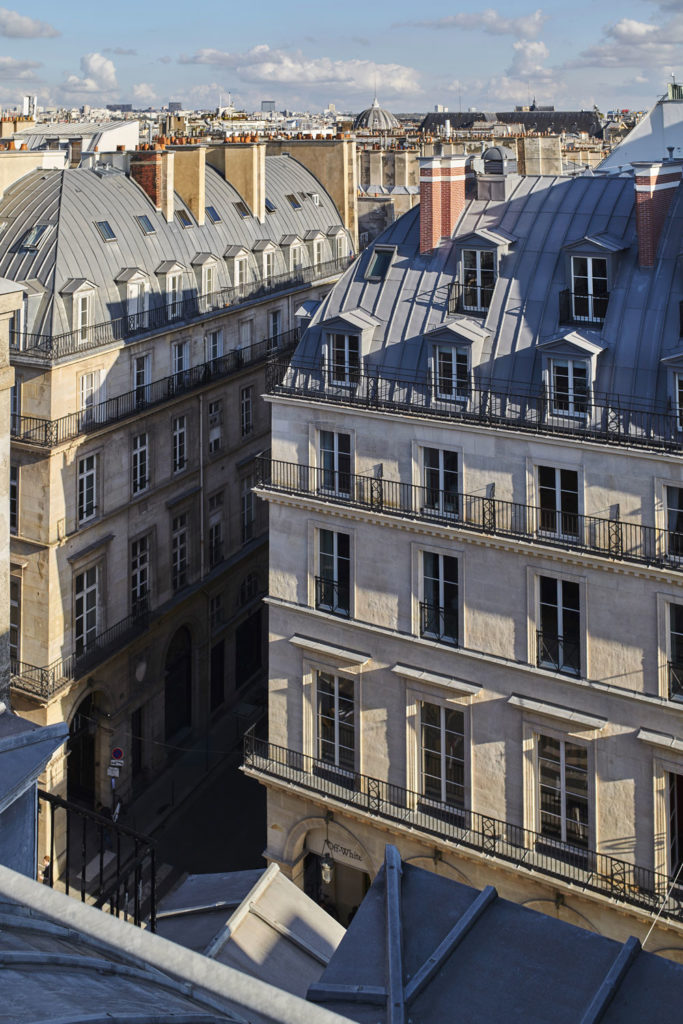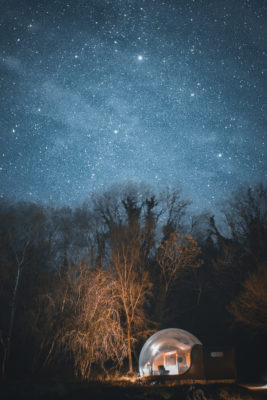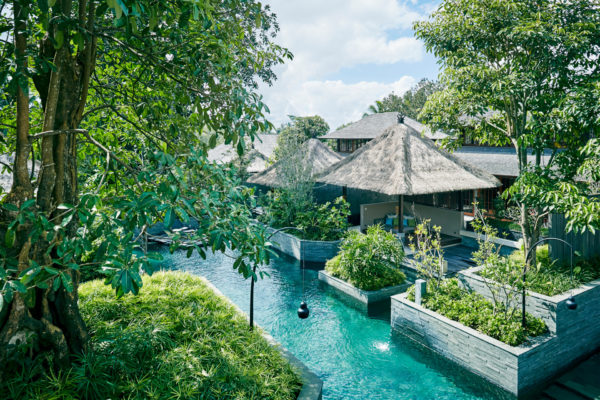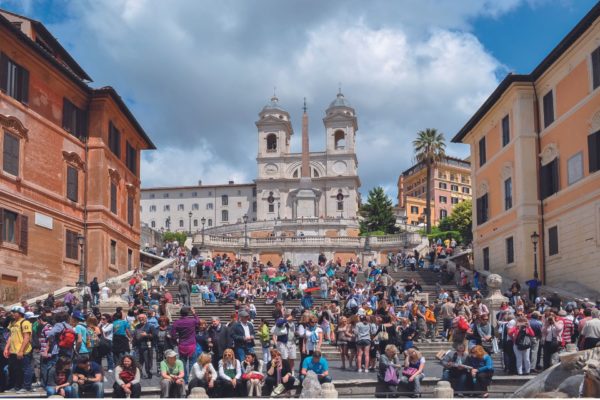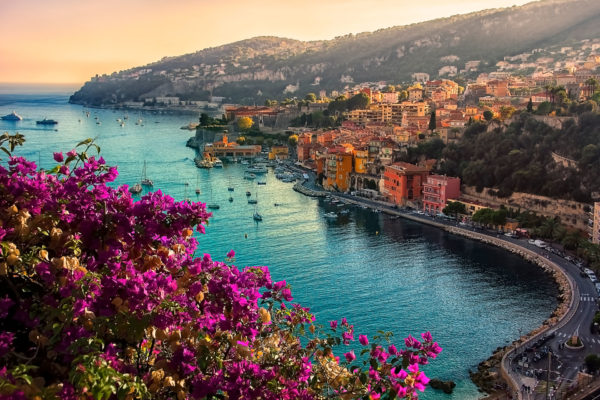
Leave No Trace: Experiencing Botswana’s Okavango Delta
By
11 months ago
Stephanie Drax enjoys a safari in Botswana with the lightest of touches
Great Plains Conservation pioneered conservation tourism in Africa, setting new standards in sustainability, hospitality and humanity. Duba Plains Camp in the Okavango Delta is just one example of their rigorous work. Stephanie Drax finds out more.
Read the C&TH Guide to Responsible Tourism
Review: Experiencing The Okavango Delta With Original Travel
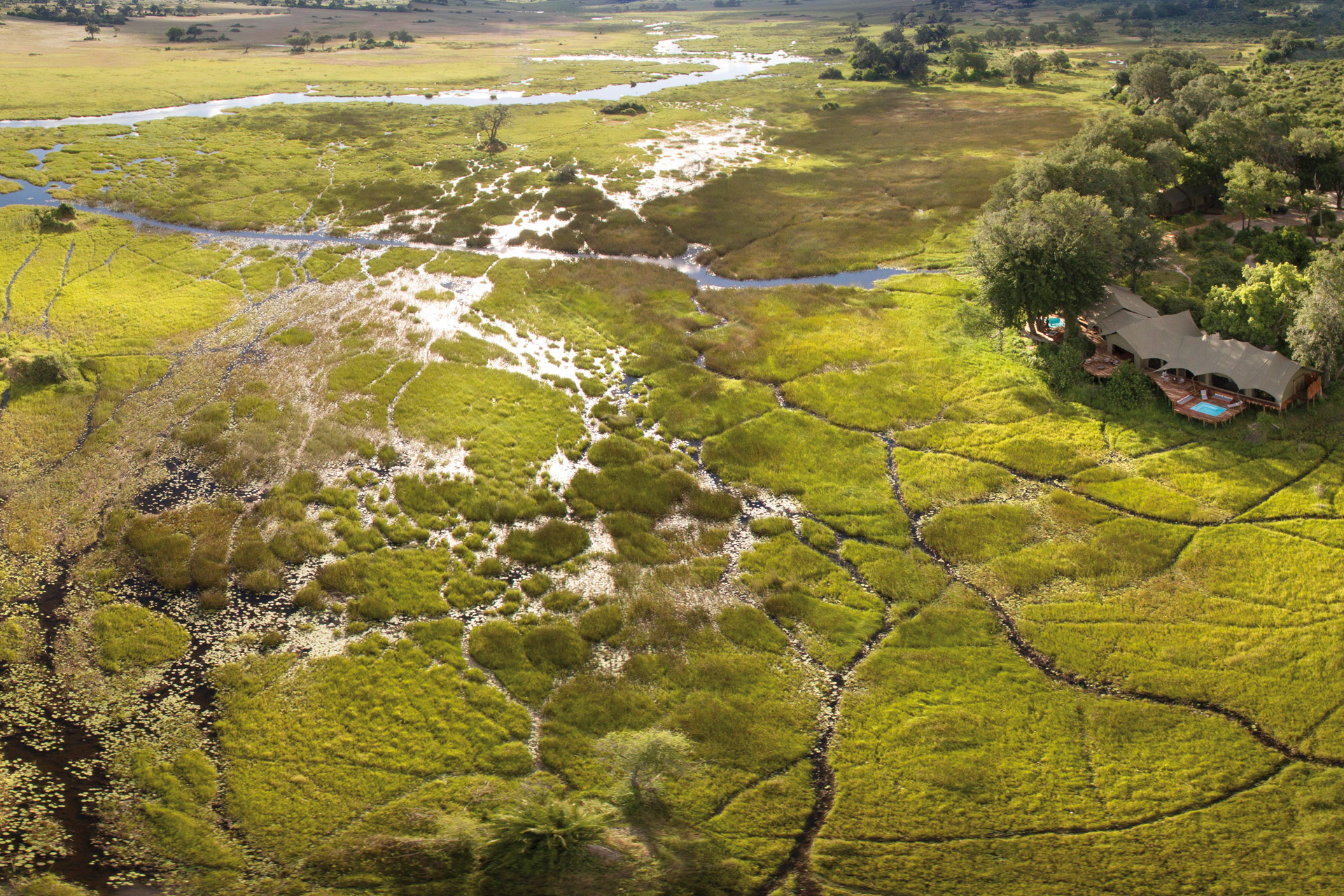
The Okavango Delta is a sprawling, nature-rich wetland in Botswana (Duba Plains)
When seen from space, the Okavango Delta bursts across 22,000 sq/km of Africa like a shimmering fountain flare, drenching the Kalahari Desert with ten billion cubic metres of fresh water. During the wet season, it trickles a thousand kilometres from the Cuito and Cubango rivers in Angola, gathering charge uninterrupted through Namibia before splaying itself across the swampland of Botswana after austral summer. It’s little wonder that the delta invites the largest – and arguably luckiest – wildlife population on the continent.
I skim above it in a tiny plane, taking in the millennia-forged matrix of grassy floodplains, watery tendrils, and golf-course- green islands pitted like lichen on the land. By the time we touch down, I’ve already spotted four of the Big Five. It’s a prelude to what’s on offer at Duba Plains Camp and what its operating company, Great Plains Conservation, works so fiercely to protect.
My first question, though, as my guide, Rapz Samati, drives me to our camouflaged micro-camp on the island, is: ‘What’s that smell?’ The scent of wild sage is heavenly. So too, is the enormous suite prepared for my family, one of only six tents at the camp. My two young boys gawp at the vast rooms, copper bath, outdoor shower and mini swimming pool, all elevated on stilts, with a wraparound deck for Attenborough addicts such as us to admire grazing elephants on the largest ‘flatscreen TV’ imaginable.
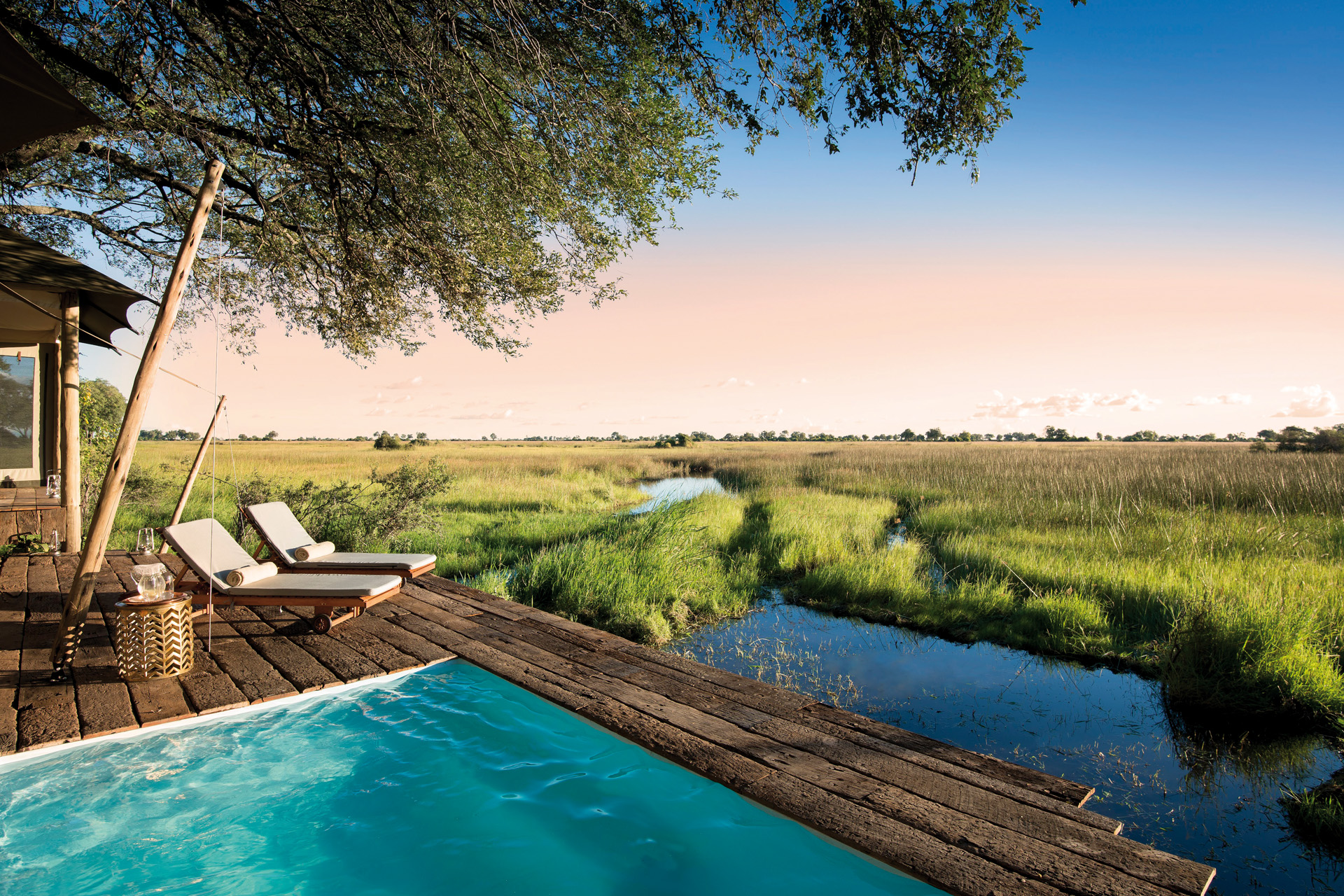
Duba Plains Camp offers a real back-to-nature experience
So far, so safari, you might think. Here’s the difference: Great Plains pioneered conservation tourism in Africa, setting new standards in sustainability, hospitality and humanity. It all began here in Botswana in 2006. Founded by Beverly and Dereck Joubert, Emmy Award-winning wildlife filmmakers, Great Plains was conceived to rescue and replenish the creatures and habitats that the couple saw diminishing before their eyes. When the Jouberts were born almost 70 years ago, there were 400,000 lions in the wild; today there are 20,000. Using funds generated from their 15 camps across Botswana, Zimbabwe and Kenya – and they have never themselves taken a dividend – the Jouberts affect real change, on the ground and in the mind.
On their concessions, all leased from the locals, hunting is banned and human impact is limited. Their camps can all be deconstructed to leave no trace and plastic is virtually non-existent. Duba Plains runs on 100 percent solar power, grey water feeds the environment, and leftover food is converted to biogas that can be cooked with or used as slurry for farming projects.Eighty percent of the staff come from the local community and are carefully trained. Tourist dollars spent here filter to the right places, including helping to move rhinos from poaching hotspots to safe havens, training potential poachers to be rangers, building a force of female rangers and rewilding the Sapi reserve in Zimbabwe with species on the brink of extinction.
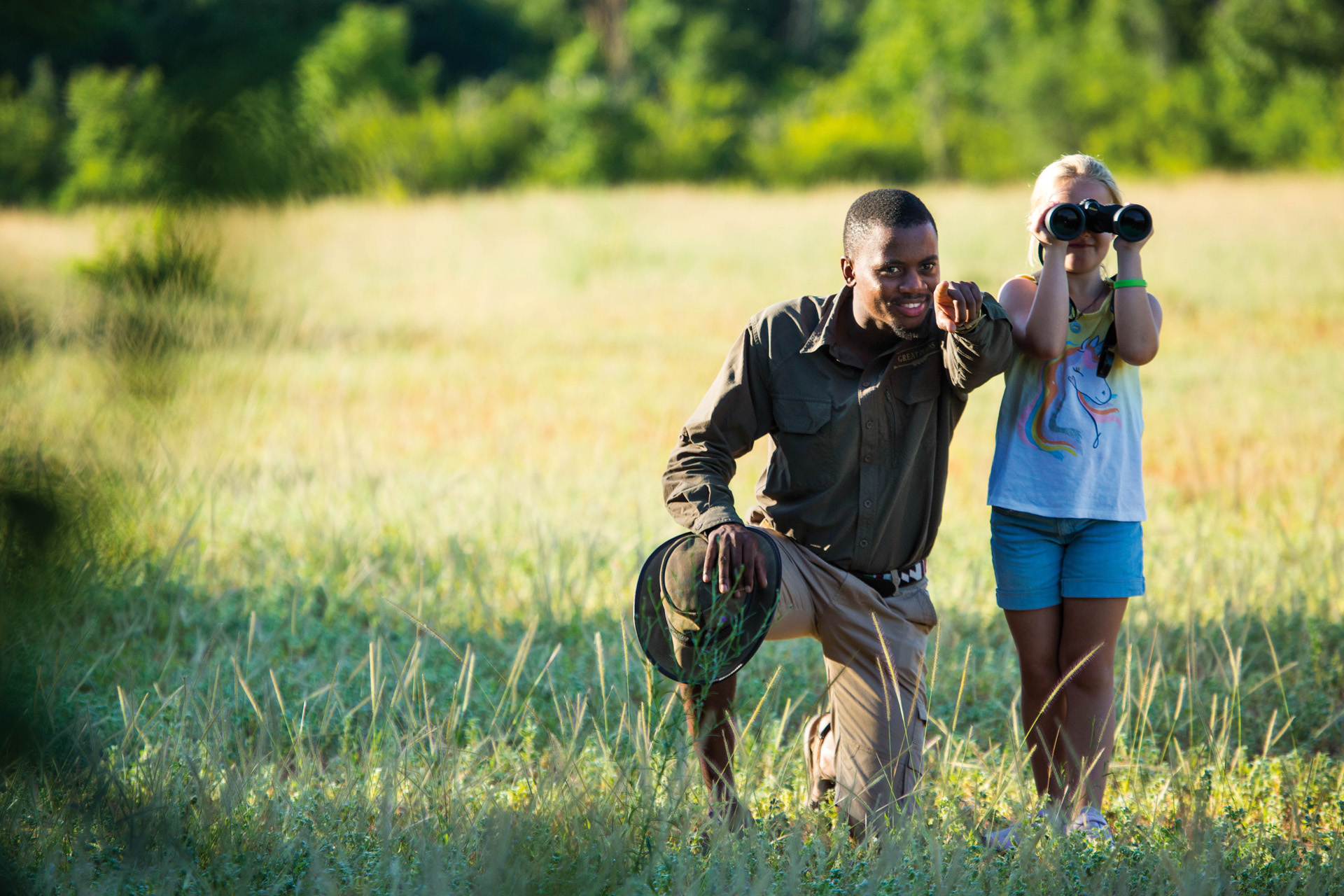
Expert guides lead guests on bushwalks and safari drives
The bush in the delta thrums with the chirping of reed frogs. Rapz drives us over a log bridge that connects the island camp to the grassy, open plains. Monkeys sound an alarm call in a sausage tree, alerting us to a magnificent lion napping in the shade. For him and his pride, the rhino and red lechwe aquatic antelope, this is country-club living, but they rest on a knife edge: ‘Without tourism, our eyes would be diverted from poaching, the community might compete with the animals for meat and wild berries, and they might resort to aiding poaching or farm and fence the land,’ warns Rapz, ‘When the floods arrive, they could block the water and disrupt the natural way.’
Great Plains tactically educates local children in sustainability, and they share the knowledge with their parents. We all have our part to play in the delicate balance of the delta, it seems, and as the sky at dusk turns the colour of papaya flesh, we watch two wild dogs run down and rip apart a red lechwe. It’s a visceral and poignant moment that serves to remind us that sometimes we must remain silent witnesses.
Dawn brings the second act of our adventure: a water safari at Sitatunga Private Island. We board a small boat and meander our way to the newest Great Plains camp, using channels that can change with the shift of tectonic plates. It’s a deeply soothing journey and the diversity of birds now captures our attention: Goliath heron, malachite kingfishers and the globally threatened wattled crane take turns outstripping our boat. Using a long lens camera (lent to all Great Plains guests), I capture a fish eagle as it whips a catfish from the water and feasts on it in the papyrus reeds.
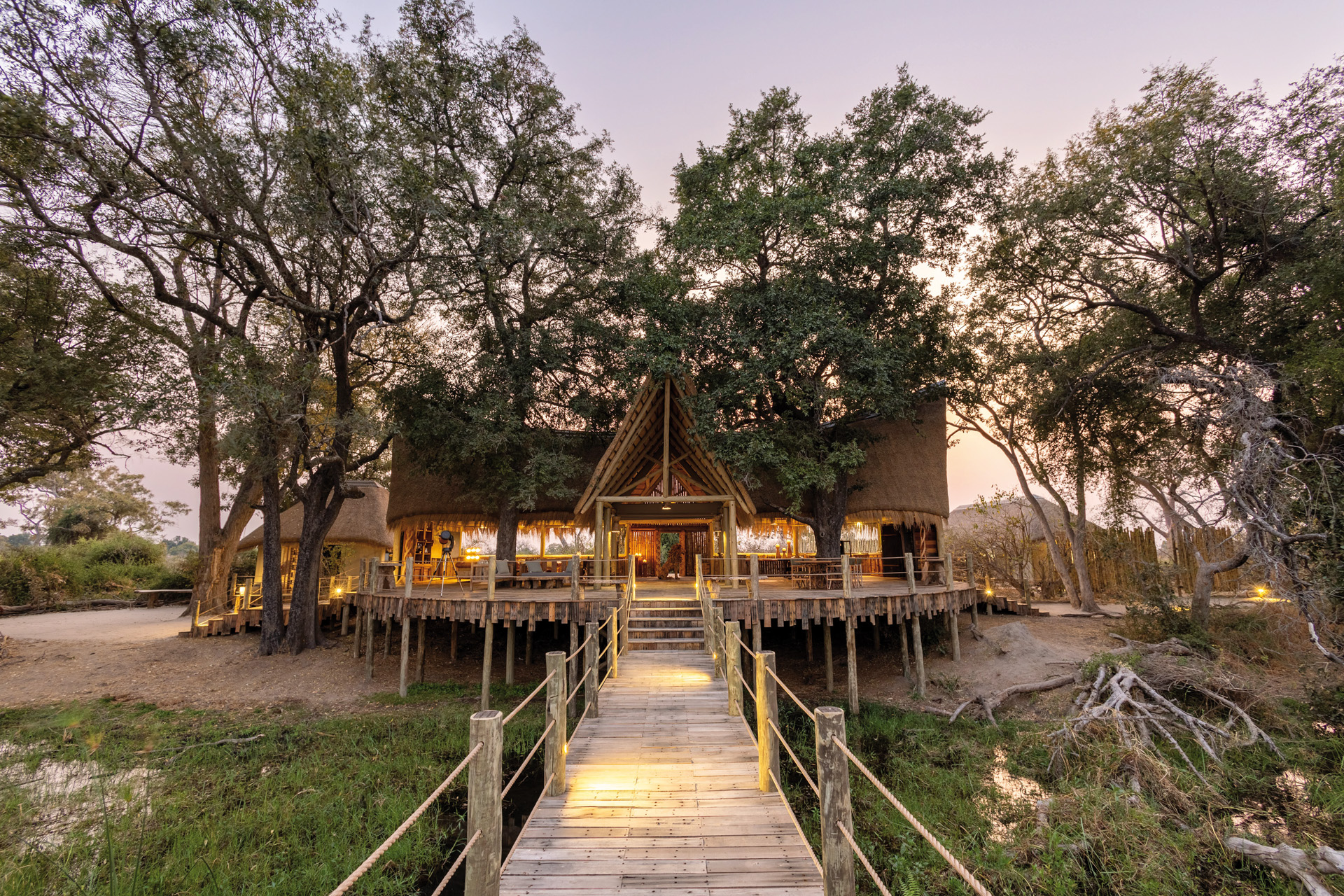
Sitatunga Private Island is situated in a lagoon filled with hippos
On the far side of a hippo-laden lagoon, the small, raised camp blends into ebony trees. Staff greet us on the pontoon like long- lost family – the service at Great Plains is heartfelt – and we settle into our remote Robinson Crusoe chapter. Old treasures breathe life into an eco-salvage aesthetic: railway sleepers from a mine in South Africa line the floor, and shaggy thatch covers canvas roofs and walls. The blonde wooden structures – the heart of each of the three suites – are inspired by local fishing baskets that showcase both the culture and craftsmanship of the area. Just like Duba, Sitatunga treads lightly and could be removed with no impact on the environment.
Back on the boat for our aqua game drive, Pat Malatsi, our ranger from the local Beyei tribe, is in synch with our surroundings. When he calls to the birds – a swamp boubou or a little rush warbler – they call back. We play spot the croc in teeming waters: they grow up to six metres here and might even try their luck with a baby elephant. Pat casually cups his hand in the water and drinks from the delta.
When we venture out at dusk in mekoro (traditional canoes), we come across a pod of 35 bathing hippos, their alpha male baring his fleshy, pink mouth at us in warning. Pat stops us still. Our hearts are in our mouths, but Pat allows us to admire them from a safe distance. As we peacefully retreat, I shoot them with my camera, capturing them through my lens. We all breathe calmly together in this verdant piece of Africa, on a speck of sparkling water that can be seen from space.
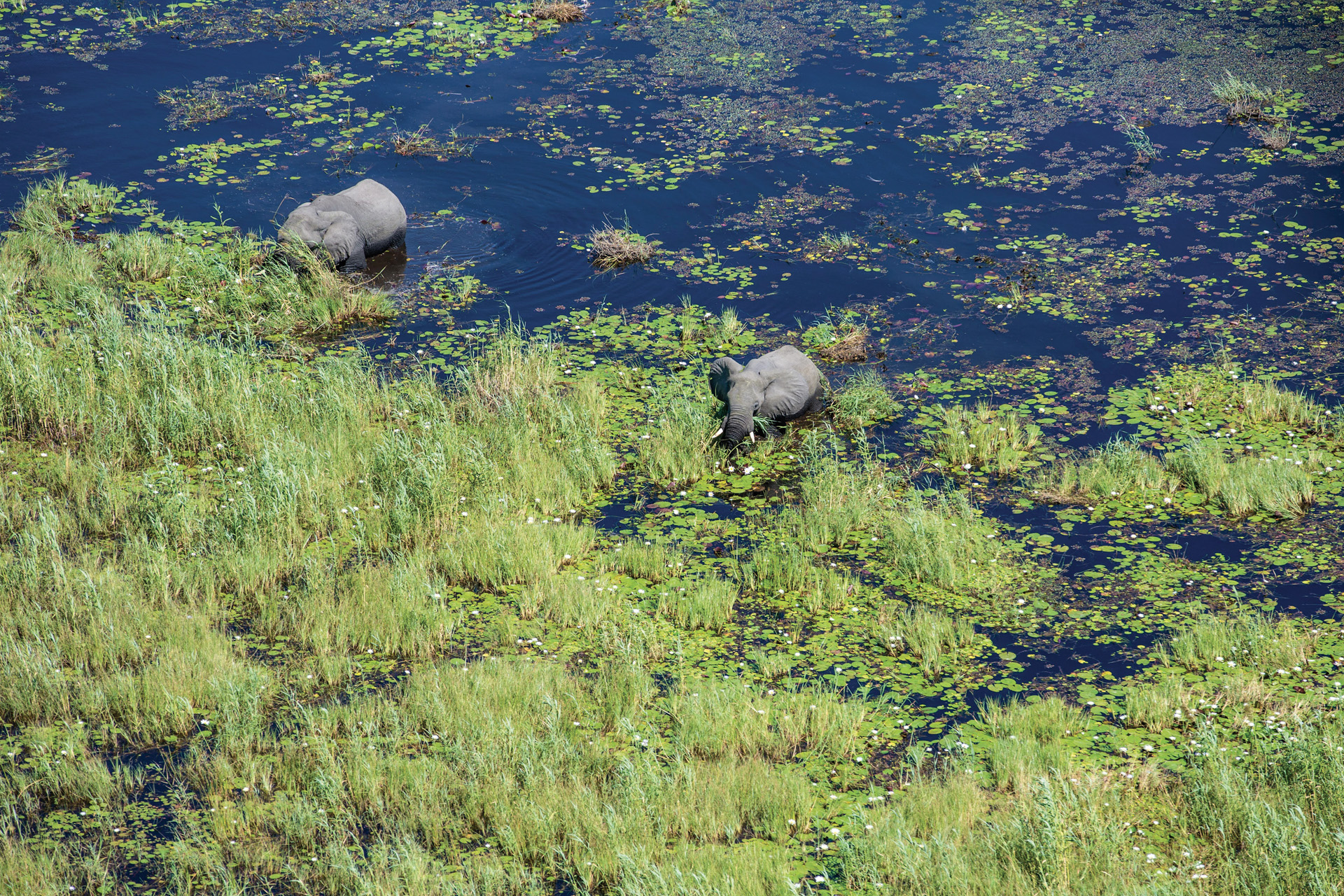
Spy the Big Five (and many other species) in their own habitats
BOOK IT
Original Travel offers a five-night stay in Botswana, based on two adults sharing a pool suite in Duba Plains for two nights, and three nights at a pool suite in Sitatunga Private Island (full-board) with return economy-class flights from London Heathrow, connecting flights, private transfers, and guided tours, from £12,500pp. originaltravel.co.uk
Stephanie’s return flights had a carbon footprint of 2,772kg CO2e. ecollectivecarbon.com

